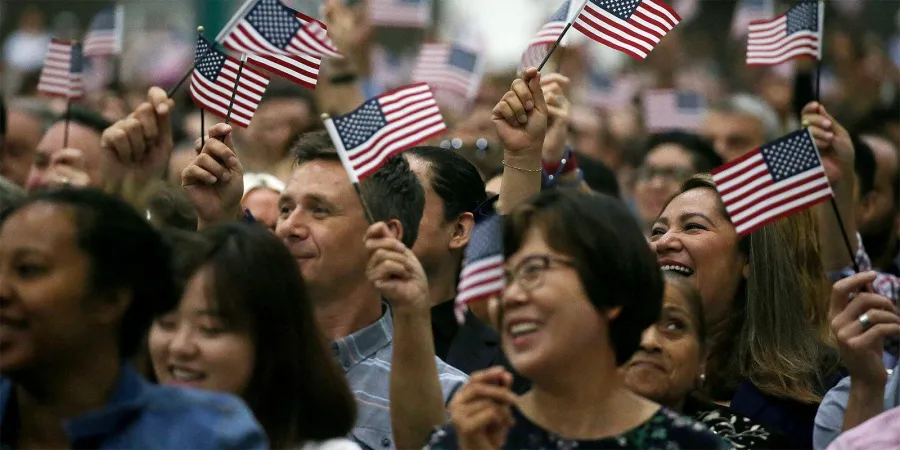Public Charge Rule Would Turn American Dream into Nightmare for Millions

This summer, I joined thousands of union members at a rally in Philadelphia to speak out against the Trump administration’s family separation policy. I was there to represent our union’s vision and values. We reject an immigration policy based on fear and cruelty. We embrace an immigration policy based on our common humanity, one that treats everyone with decency and dignity.
But a new rule proposed in October by the Trump administration would subject immigrants to a new form of cruelty. And it would make it significantly harder for many immigrants who are here legally to remain in the country. Worse still, it would value immigrants not by the contributions they make to communities across the United States, but by their income.
Since 1882, our nation has required that immigrants not become “public charges” by depending primarily on the government for their subsistence through, for example, Supplemental Security Income (SSI) or Temporary Assistance for Needy Families (TANF). Immigration officials currently consider whether an individual receives cash assistance benefits or is likely to require government-funded nursing home care as negative factors in making decisions about who gets to remain permanently in the U.S.
But the Trump administration and its anti-immigrant allies want to expand the definition of “public charge” to include anyone receiving a range of benefits — including Medicaid, Medicare Part D prescription drug assistance, Supplemental Nutrition Assistance Program (SNAP) and public housing vouchers. These are non-cash benefits not intended for income maintenance which have never before been included in the public charge calculation.
What would this mean in practice? It would mean that if you are a legal immigrant with an elderly parent who needs help paying for expensive prescription medicine, or if you have a child with autism, your right to stay in the U.S. could be in jeopardy. While much of Trump’s anti-immigrant rhetoric targets undocumented immigrants and refugees, this policy punishes people who have played by the rules to get here legally and who contribute to our tax base and economy.
The only way to be exempted from the new screening would be to demonstrate a household income above $41, 150 for a couple and $73,550 for a family of five. Think about it: a homecare worker making $14 an hour could never qualify for this exemption.
An estimated 26 million individuals would be affected by this proposed rule. And it comes as no surprise that the impact would be disproportionate on people of color, with 18.3 million Latinos, 3.8 million Asian Pacific Islanders and 1.8 million African or Caribbean immigrants potentially affected.
As with many other Trump administration proposals meant to sow fear and confusion, this proposed rule has already created uncertainty in immigrant communities. Community health clinics have reported that immigrant parents are not bringing in their children for scheduled checkups. Some parents have pulled their children from Head Start out of fear that using any public program might trigger their deportation. Public health officials are warning that the rule has had a chilling effect on legal immigrants’ willingness to get flu shots, potentially putting themselves and everyone they contact at risk.
Emergency medical care would not trigger scrutiny under the new rule, and it is projected that many legal immigrants might forego preventive care for chronic conditions and seek care later at an emergency room. The cost of those visits would be primarily passed along to state and local governments, straining the public budgets which fund many critical services.
The American Dream has always been a beacon for those who want to come to the United States to create a better future for themselves and their families. Immigrants are a vital part of the economic engine which fuels our nation. Study after study has shown that immigrants make our nation stronger – culturally and economically.
Submit Your CommentsAFSCME is filing comments to oppose the rule. But more voices are needed. The deadline for sending public comments regarding the rule to the Department of Homeland Security is December 10. To send your own comments in opposition to the rule, go to https://protectingimmigrantfamilies.org. |
